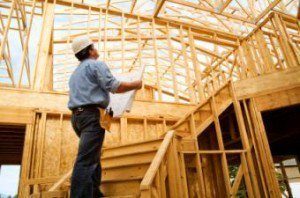
A study by the Harvard Joint Center for House Studies (JCHS) [1]forecasts that housing projects may take longer to complete due to COVID-19.
The JCHS said that single-family construction had been depressed since the Great Recession, with 12 consecutive years of less than 1 million starts. Starts were growing, although slowly, over the past eight years, reaching 888,000 starts in 2019.
There are currently 1.2 million units under construction.
The report said one of the reasons that construction may slow could be due to building services offices being closed or adopting new processes. JCHS said many city offices are currently closed to the public as staff work remotely, leading to delays in permitting, reviews, and inspections.
While some cities have created online systems to continue accepting permits, some larger cities were not equipped to transition online.
The Atlanta Journal-Constitution reported in March that Atlanta was not accepting new construction permits until its online system is running.
The U.S. Census Bureau revealed in April [2]that U.S. housing data fell off the cliff during March, with permits, starts, and completions all recorded declines.
Housing permits fell 6.8% from February to 1.35 million, housing completions were down 6.1% monthly to 1.22 million, and housing starts recorded a 22.3% decline from February to 1.21 million.
Every region in the nation posted declines in permits, with the largest drop being the 12.7% drop in the midwest. The northeast posted a 32.5% decline in housing starts from February to March.
Another cause for slowdowns, according to JCHS, could be whether residential construction is classified as essential work.
Six states—Michigan, New Jersey, New York, Pennsylvania, Vermont, and Washington—have stopped most residential construction. New Jersey and New York have special provisions allowing affordable housing projects to continue.
The Massachusetts cities of Boston, Cambridge, and Somerville have stopped all new residential construction. San Francisco and Austin have also stopped residential construction but exempt affordable housing projects from the ban.
Another reason presented by the JCHS for a possible slowdown is the threat construction workers face. The construction industry was facing a labor shortage before the pandemic, as the number of job openings surpassed 300,000 for the first time in 2019—a 76% increase in two years.